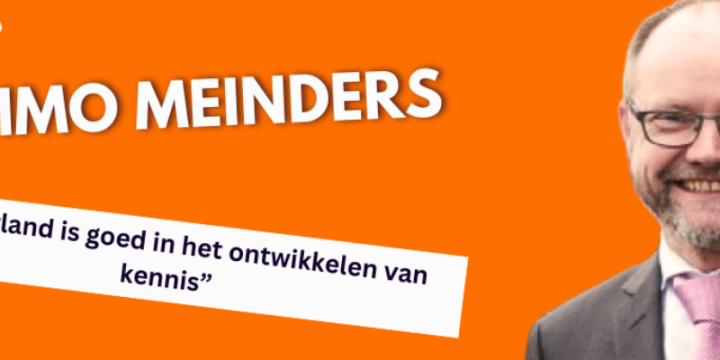In the fourth round within the program of the National Science Agenda: Research on Routes by Consortia (NWA-ORC), nineteen consortia were selected to receive funding for pioneering scientific and social projects. These projects are characterized by active collaboration between various research disciplines, knowledge institutions, public sectors and the business community. Saxion University of Applied Sciences is participating for the first time in no less than five of the nineteen awarded projects, of which they even act as secretary in two projects.
With a total funding of more than 131 million euros, a large part of which comes from the National Science Agenda, these consortia strive for innovative breakthroughs with an emphasis on interdisciplinary collaboration between various knowledge institutions and the public and private sectors.
Read below a summary of the Smart Skills@Scale project, of which Saxion University of Applied Sciences is the secretary. We also highlight the Hybrid Labs project, which is about accelerating the energy transition.
Smart Skills@Scale
One of the larger awarded projects for which Saxion is secretary is the Smart Skills@Scale project. 8.9 million euros has been allocated for this project. The aim of this project is to achieve a major breakthrough in a period of eight years towards a sustainably employable working population. This project aims to realize a sustainably employable workforce with a Smart Industry community of 450 SMEs, partners and research groups in an 8-year program. The network focuses on designing people-oriented production systems, smart workplaces, jobs & careers and (regional) partnerships. The focus is on encouraging production employees and organizations to continuously develop and contribute to innovation and the application of smart technology. Secretariat and lector Human Capital Stephan Corporaal: ''This program is a huge milestone for the collaboration between Saxion University of Applied Sciences and the University of Twente in the field of people-oriented technology and the national network leading to a social breakthrough in the field of people-oriented industry.''
The consortium includes: Hogeschool Saxion, TNO Leiden, Universiteit Twente, Universiteit van Amsterdam, TNO, Radboud Universiteit Nijmegen, Maastricht Universiteit, HAN Hogeschool, Vrije Universiteit and FME.
HybridLabs - Accelerating Dutch innovations in offshore renewables through data-driven hybrid labs
HybridLabs accelerates the energy transition by developing renewable offshore technologies for electricity and hydrogen production. At the same time, HybridLabs strengthens the offshore food and ecological transition. It creates a strong position for the Dutch knowledge and innovation chain and offers commercial opportunities for floating wind energy along the Irish Atlantic coast. With hybrid experimental facilities, simulators and offshore demonstration locations, HybridLabs forms a unique Dutch infrastructure from which technologies can be developed faster and more cost-efficiently. Knowledge transfer is aimed at the business community, policy makers, NGOs and citizens.
The consortium includes: Technische Universiteit Delft, Wageningen University & Research, Rijksuniversiteit Groningen, University of Twente, Technische Universiteit Eindhoven and TNO.
National Science Agenda
The Netherlands Organization for Scientific Research (NWO) carries out the NWA research program on behalf of the Ministry of Education, Culture and Science (OCW). The NWA finances scientific research, studies social issues and shows how science works. It is always about themes that play a major role in society. These are topics that citizens have put forward themselves. The NWA also introduces everyone to science in an accessible way through all kinds of activities. All this is always done in collaboration with various parties. From universities and research institutes to companies and citizens.





